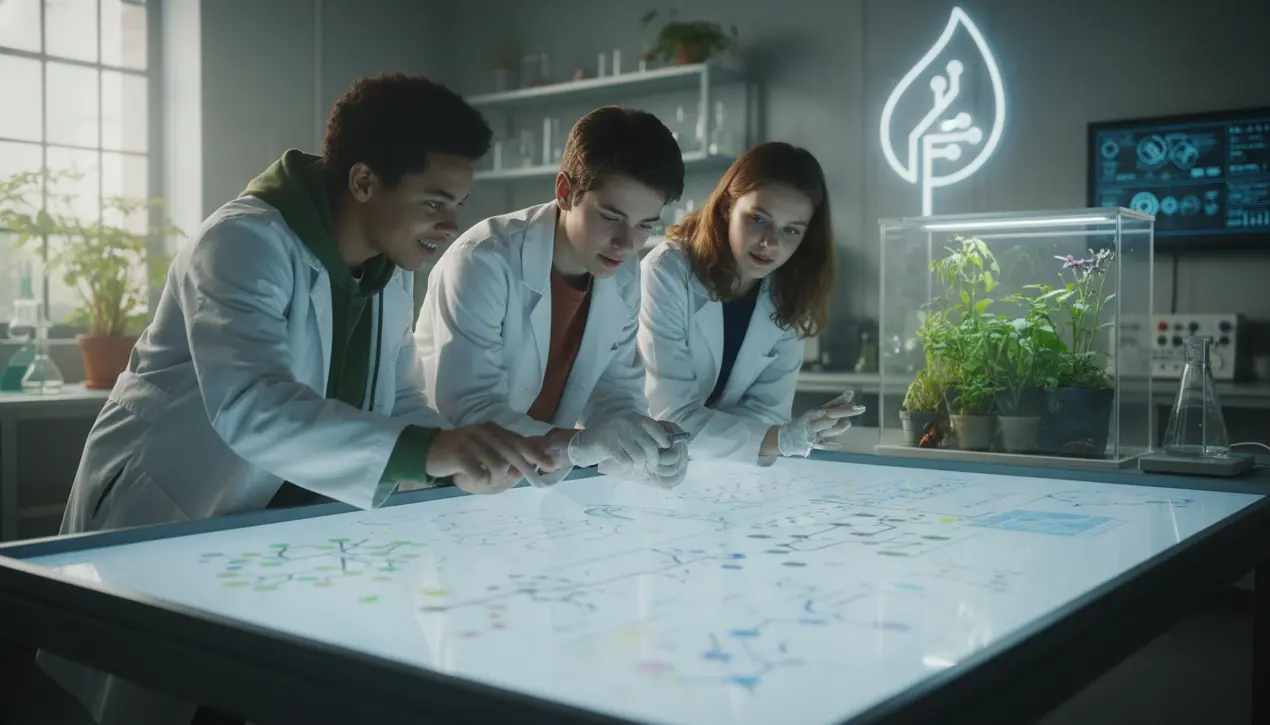
AIresearch & breakthroughsScientific Discovery via AI
Teen founders raise millions for AI-driven pesticide innovation.
KE
Kevin White
5 hours ago7 min read1 comments
In a stunning move that blurs the traditional boundaries between biotechnology and artificial intelligence, a team of teenage founders has successfully secured millions in venture capital for Bindwell, a startup that is radically repurposing AI-driven drug discovery techniques to invent a new generation of pesticide molecules. This isn't just a story of precocious young entrepreneurs; it's a fundamental shift in how we approach one of humanity's oldest agricultural adversaries.The core innovation lies in applying the sophisticated computational models used to identify promising pharmaceutical compounds—a process that typically involves screening millions of molecular structures against protein targets in the human body—to the complex biochemistry of pests and plants. Imagine the AI as a hyper-intelligent molecular matchmaker, but instead of seeking a cure for cancer, it's designing a precise key to disrupt a specific enzyme in an invasive beetle, leaving beneficial pollinators like bees entirely unscathed.This approach, known as rational design, represents a quantum leap from the old paradigm of broad-spectrum pesticides, which operate with the destructive subtlety of a sledgehammer, indiscriminately poisoning ecosystems and contributing to the alarming collapse of insect populations globally. The implications are staggering.We're looking at the potential for a CRISPR-like precision in agriscience, where crop protection becomes a targeted, customizable defense system. The AI can model molecular interactions at a scale and speed impossible for human researchers, predicting not only efficacy but also environmental degradation rates and potential toxicity to non-target species long before a single molecule is synthesized in a lab.This could dramatically shorten the decade-long, billion-dollar development pipeline traditionally associated with new agrochemicals, a timeline we can scarcely afford given the rising threats of pesticide resistance and climate-induced crop stress. However, the path forward is not without its profound ethical and ecological questions.Who governs the output of these AI models? How do we prevent the accidental creation of a super-toxin, or ensure that these proprietary, digitally-born molecules don't themselves become the next environmental contaminant we struggle to understand? The venture capital floodgates opening for Bindwell signals a powerful vote of confidence in a bio-digital future for farming, but it also underscores the urgent need for a parallel development in regulatory frameworks that can keep pace with AI's explosive generative power. The teenagers behind this venture may have their eyes on a trophy at a science fair, but they are inadvertently steering us into the next great debate at the intersection of synthetic biology, artificial intelligence, and planetary health.
#Bindwell
#AI
#pesticides
#drug discovery
#Paul Graham
#featured
#agriculture
#biotechnology
#chemistry
Stay Informed. Act Smarter.
Get weekly highlights, major headlines, and expert insights — then put your knowledge to work in our live prediction markets.
Comments
Loading comments...
© 2025 Outpoll Service LTD. All rights reserved.